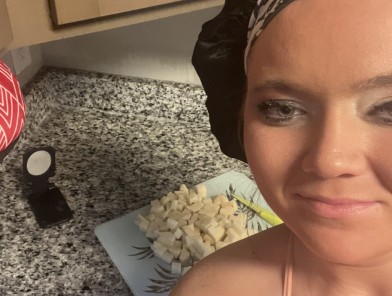Hey there! Let’s be real sex should feel good, not painful. Yet, for many people, even casual intimacy can come with discomfort or outright pain. And it’s not always about your partner’s skill. Pain during sex can affect your confidence, emotional well-being, and the quality of your relationship. The good news? Once you know what’s causing it, you can do something about it.
In this guide, we’ll cover the main reasons sex can hurt, how to prevent pain, and practical tips for improving your intimate life.
Why Vaginal Dryness Can Make Sex Uncomfortable
One of the most common reasons for painful sex is vaginal dryness. Without enough lubrication, friction can become uncomfortable or even painful. This can affect women of all ages and has nothing to do with desire or attraction.
What causes dryness?
-
Hormonal changes: Menopause or other shifts in estrogen levels thin the vaginal walls and reduce natural lubrication.
-
Breastfeeding: Hormonal changes during nursing can temporarily reduce vaginal moisture.
-
Medications: Certain birth control pills, antihistamines, or antidepressants may cause dryness as a side effect.
-
Stress and anxiety: Emotional strain or negative experiences around sex can suppress your body’s natural lubrication.
-
Childbirth: Vaginal tissues may take time to fully recover after giving birth, leading to dryness or sensitivity.
Tips to prevent and manage dryness:
-
Foreplay matters: Taking time to get aroused naturally increases lubrication. Experiment with extended touching, kissing, and oral sex.
-
Open communication: Let your partner know what feels good and what doesn’t. Your comfort matters, and talking about it often reduces tension.
-
Lubricants: Water-based lubes are safe, easy, and effective. Don’t be shy they can make all the difference.
-
Vaginal moisturizers: Regular use can keep tissues hydrated and prevent dryness before it starts.
-
Medical options: Hormone therapy (HRT) may help in cases linked to low estrogen, but always discuss this with a doctor.
-
Healthy lifestyle: Managing stress, staying active, and eating a balanced diet supports hormonal balance and overall vaginal health.
Sexual Dysfunctions and Pain
Sometimes, painful sex is related to sexual dysfunctions, which can be both physical and psychological. These issues are common and nothing to be embarrassed about.
Common sexual dysfunctions that cause pain:
-
Dyspareunia: Painful intercourse, either lifelong or developed later. Causes include dryness, infections, endometriosis, or muscle tension. Emotional factors like anxiety or past trauma can also play a role.
-
Vaginismus: Involuntary tightening of vaginal muscles makes penetration difficult or impossible. This is often linked to psychological stress or trauma.
-
Erectile dysfunction: In men, difficulty achieving or maintaining an erection can indirectly cause painful or frustrating sexual experiences. Causes may be physical (hormonal, vascular) or mental (stress, performance anxiety).
Ways to prevent or manage pain from dysfunctions:
-
Communication with your partner: Honest conversations about worries, feelings, and limits reduce sexual anxiety and help you work together.
-
Sex therapy or couples counseling: Professionals can help address anxiety, trauma, or emotional blocks affecting intimacy.
-
Medical check-ups: Persistent pain or dysfunction should be evaluated by a doctor for diagnosis and treatment.
-
Alternative sexual activities: If penetration hurts, explore oral sex, clitoral stimulation, or gentle anal play if both partners are comfortable. Using sex toys can also enhance pleasure without pain.
Endometriosis and Painful Sex
Endometriosis is a condition where tissue similar to the uterine lining grows outside the uterus. This can make sex painful, especially during deep penetration. Symptoms may include:
-
Pain during or after sex
-
Heavy or irregular periods
-
Pelvic pain unrelated to menstruation
Managing endometriosis-related pain:
-
Medical consultation: Diagnosis and treatment by a gynecologist are crucial.
-
Pain relief strategies: Over-the-counter painkillers, heat pads, or prescribed medications can help.
-
Sexual adjustments: Certain positions may reduce discomfort experiment to see what works for you.
-
Emotional support: Endometriosis can be frustrating; talking with your partner or a therapist helps manage stress and anxiety.
Lifestyle Tips for Reducing Pain During Sex
Beyond medical issues, your overall health and habits can influence sexual comfort:
-
Exercise: Strengthening pelvic floor muscles improves control and reduces tension.
-
Mindfulness and relaxation: Stress increases muscle tightness and reduces natural lubrication. Try breathing exercises or meditation before intimacy.
-
Nutrition: A balanced diet supports hormonal health. Omega-3s, leafy greens, and hydration all help maintain natural lubrication.
-
Sleep: Proper rest helps regulate hormones, which affects sexual function.
When to Seek Help
Don’t ignore persistent pain. If sex hurts regularly, consult a professional. Options include:
-
Gynecologists for physical causes
-
Sexual therapists for emotional or psychological causes
-
Couples counselors to improve communication
Pain is not something you should just accept addressing it early can save your confidence, your pleasure, and your relationship.
Bottom Line
Pain during sex is more common than many admit, but it’s not “normal” and it doesn’t have to ruin intimacy. Whether it’s dryness, a sexual dysfunction, or a medical condition like endometriosis, understanding the cause and taking proactive steps can dramatically improve your experience. Open communication, experimenting safely, using lubricants, and seeking professional help when needed are all keys to making sex pleasurable again.
Remember, your body deserves pleasure, and addressing pain is the first step to truly enjoying intimacy.













